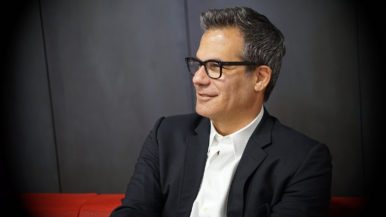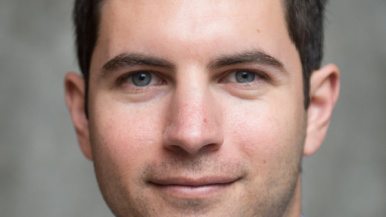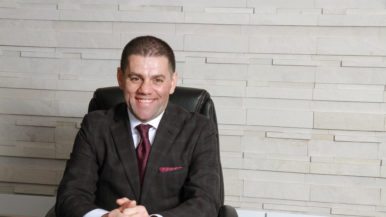Q&A: Aaron Low, the speech pathlogist whose magic fingers rescue celebrity larynxes
Our interview with the guy Sam Smith and Mick Jagger have trusted to massage their voice boxes back to health

By day, Aaron Low is a speech pathologist who provides a range of services to ordinary people with scratchy throats. By night, he’s a sometimes-secret lifesaver for the biggest musical acts that tour through Toronto, including Sting, Mick Jagger and Sam Smith. Low’s signature maneuver is what he calls “laryngeal manipulation”—a type of throat massage that he claims can make the voice box feel like new again. We asked him about it.
You’ve built a reputation for treating famous people, like Sting, Sam Smith and Mick Jagger. Explain.
It was just singers telling other singers, “I had this problem and then I got some help from Aaron Low.” It’s an on-the-street sort of marketing. Then I had labels, studios and tour managers saying they’d heard of me, and singing teachers started sending people to me, too.
Who else needs a voice box massage?
Lawyers, judges, rabbis and professors come to me, because if they can’t talk, they don’t have jobs. About 25 per cent of my clients are active performers, like actors and singers.
So, what is “laryngeal manipulation”?
Tension, like holding stress and grinding your teeth, can cause voice fatigue. Tension can be worsened with a repetitive factor, like singing the same set every night. Sometimes singers sound sick when they’re not sick, or they feel a knot or tickle in the throat. Before these problems take over the voice, I can fix them by massaging the larynx.
There are no sharp pains, no screaming. You’re in a very comfortable position and it’s just sensitivity on the surface of the muscle. Like a regular massage, you’ll feel tenderness that’s not the most comfortable, but it gets better as we go through the surface musculature where a lot of that pain sits. Once the body starts to feel less ache and pain, it gives back flexibility and resonance to the voice.
You even do house calls to the ACC.
I do. If you’re a singer, a voice issue can be life altering. You may have to stop your tour, and truckloads of people are stuck waiting for one human to come back. So we go down to the ACC. We pull out a scope, show them their vocal cords, and then I get to work with my muscle techniques. I tailor it specifically to that person and what they’re doing on that stage. We do sound check, make sure everything’s good, and then the show goes on.
Have things ever gone off the rails?
Not really, but one time I treated a soprano who sang with Andrea Bocelli. She spoke only Italian. I had to call my wife—she speaks five languages—and she came down to translate. I worked on the singer from 3 p.m. until 8 p.m., a half hour before she went on stage. She sat us in the front row and sang Ave Maria at full voice without a mic. Afterwards, she pulled us backstage and said, in Italian, “I haven’t sung this well in 10 years.”
Whose voice box would you most like to get your hands on?
I want to treat Paul McCartney, because I think he’s still got it. Singers like McCartney have amazing, genius skills—but they don’t exercise their voices. It’s not about aging, it’s about voice management. My dream is that Paul calls me up and asks if I can make his voice sound youthful, so he can hit the high notes in “Hey Jude” like he used to.










